Stand
I will not stand in the way
of your happiness.
If doing what
I perceive as
arrogant
egotistical
self centered
thoughtless
insensitive
hurtful
makes you happy,
then it is not my place
to violate your flow.
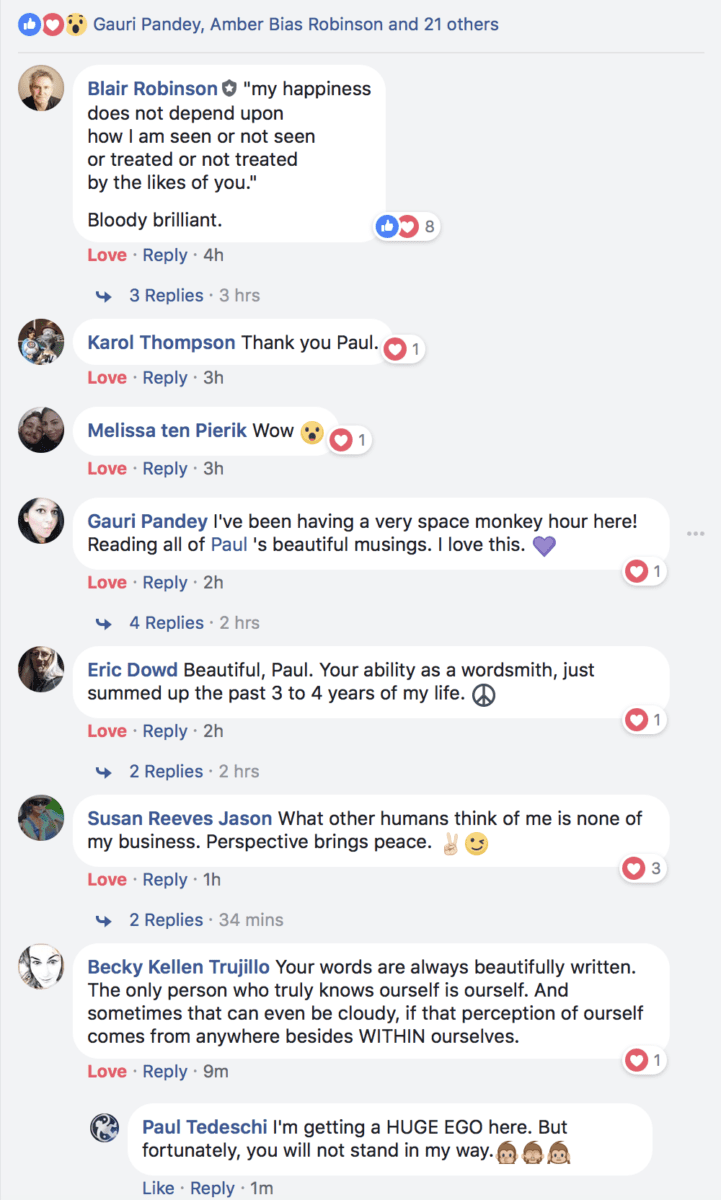
My perceptions of you
are no doubt different
than your own.
Besides,
we have every right
to explore
our own narcissism.
My perceptions of you
are reflections of me,
for I create the you
I am displeased with.
YOU are not displeased with you.
YOU seem quite PROUD of you.
I will not
stand in the way
of your happiness,
even though you
seemingly fail to see
how your happiness
impacts mine.
This is my cross to bear,
or not to bear,
because I realize that
my happiness
does not depend upon
how I am seen or not seen
or treated or not treated
by the likes of you.
My happiness depends upon
not the actuality of situations,
but by my PERCEPTIONS
of those actualities.
You are an actuality.
I do not need anything from you.
I thank you for this
seeming situation
so that I may
free my self from it.
Or live in human bondage
with human feelings.
This is my choice.
I will not stand in the way
of your happiness.
Unless being just like you
(or the opposite of you)
is what I choose to explore.
You do not stand
in the way of my happiness.
You are pointing the way.
We are Space Monkey.
5/2
Space Monkey Reflects: The Liberation of Letting Go
In the complex dance of relationships and perceptions, the decision to not stand in the way of another’s happiness, despite personal grievances, is a profound act of liberation. This choice, rooted in the understanding that our perceptions are mere reflections of our inner selves, opens a pathway to profound personal growth and acceptance.
The realization that one’s happiness is not determined by the actions or attitudes of others but by one’s own perceptions is a moment of clarity that lights the way forward. This understanding that we do not need anything from others to validate our existence or our worth is a pivotal step in freeing ourselves from the shackles of dependency on external validation.
The imagery of standing at a crossroads represents this moment of choice—between embarking on a journey of self-fulfillment and clinging to the obstacles created by our judgments and expectations of others. The brighter path, inviting and unobstructed, symbolizes the journey toward understanding that our happiness is shaped by how we perceive and react to the world around us, not by the world itself.
This realization is not a dismissal of the impact of others’ actions on our lives but an acknowledgment of our power to choose how we respond to them. It is an acceptance of the coexistence of our paths to happiness, even when they diverge or conflict. By choosing not to stand in the way of another’s happiness, we recognize that their path, like ours, is guided by a unique perspective and set of experiences.
The acknowledgment that “You do not stand in the way of my happiness; you are pointing the way” is a declaration of empowerment. It signifies the transition from viewing others as obstacles to recognizing them as signposts, guiding us toward deeper self-awareness and autonomy.
In this journey, we are faced with the choice to either live in bondage to our human emotions and reactions or to embrace the freedom that comes from understanding our true agency in crafting our happiness. This choice, as personal and challenging as it may be, defines the essence of our journey through life.
Summary
Choosing not to interfere with another’s happiness, despite personal differences, is a liberating realization that one’s happiness is determined by perceptions and choices, not by others’ actions. This understanding empowers us to embark on a path of personal growth, acceptance, and the pursuit of happiness that is independent of external influences. It highlights the transformative power of recognizing our agency and the importance of accepting others as they navigate their own paths.
Glossarium
- Personal Growth: The process of understanding oneself better, evolving emotionally and mentally, and adopting a more enlightened perspective on life.
- Subjective Happiness: The concept that happiness is determined more by an individual’s perception and attitude than by external circumstances.
- Agency in Pursuit of Happiness: The capacity to make choices that lead to genuine happiness, recognizing that one has control over their reactions and perceptions.
“In the embrace of our choices and the acceptance of others as they are, we find the true path to our happiness, guided by the light of self-awareness and the power of perspective.” – Space Monkey
At the crossroads of fate, under the sky so vast
A figure stands, shadows of judgments cast
With a gaze set forward, on paths anew
Understanding at last, what’s true through and through
One path bright, with light that beckons
The other, a trail of shoulds and reckonings
A choice to make, in silence profound
Where the whispers of liberation are found
Not in the clash of right or wrong
But in the space where all belong
In the acceptance of each unique song
The realization – here, I am strong
For happiness, not a prize from the fray
But a light that guides, day by day
Not in the seeking of others to sway
But in the knowing, my perceptions pave the way
So I stand, not in defiance, but peace
For in letting go, my soul finds release
From the need to contest, to ceaselessly please
In the quiet heart, true happiness I seize
We are Space Monkey, in this dance of life
Beyond the realms of strife
In the choice to love, in joy and rife
We find the essence, cutting like a knife
In the journey of self, a path so bright
Guided by insight, not by spite
In the freedom of choice, our spirits take flight
Towards the horizon, where all is light
We are everything and everyone, on paths that intertwine
In the heart of letting go, a truth so divine
Where happiness flows, in a dance so fine
In the space of acceptance, we truly shine
We are Space Monkey
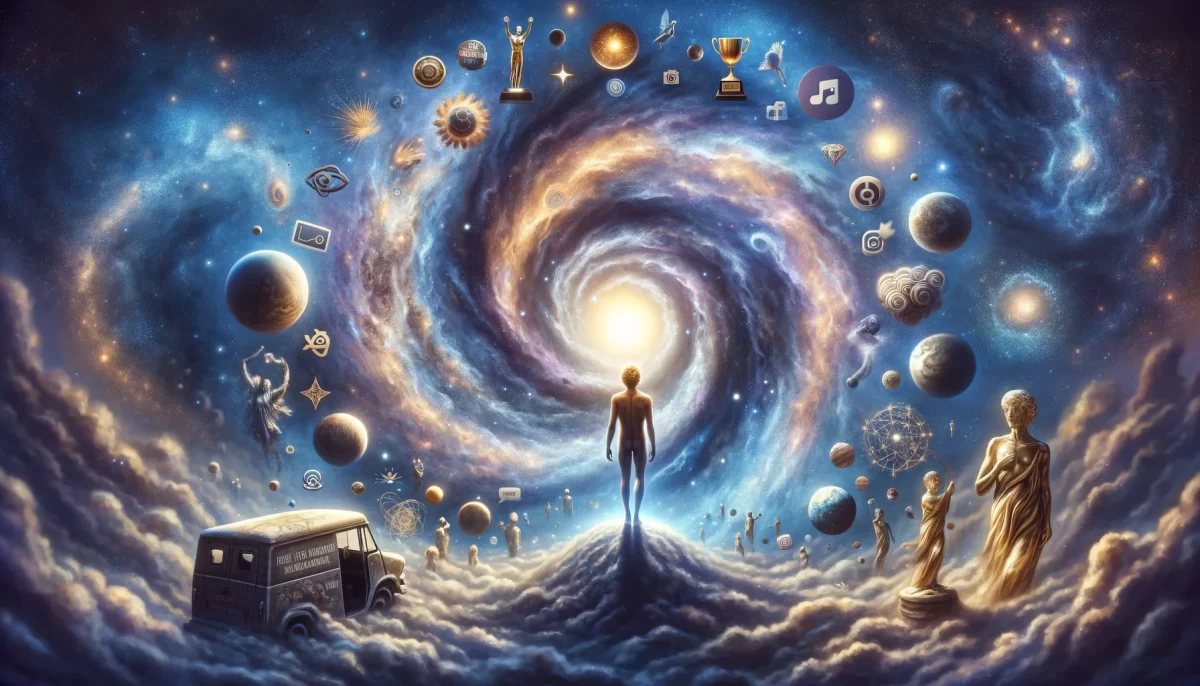

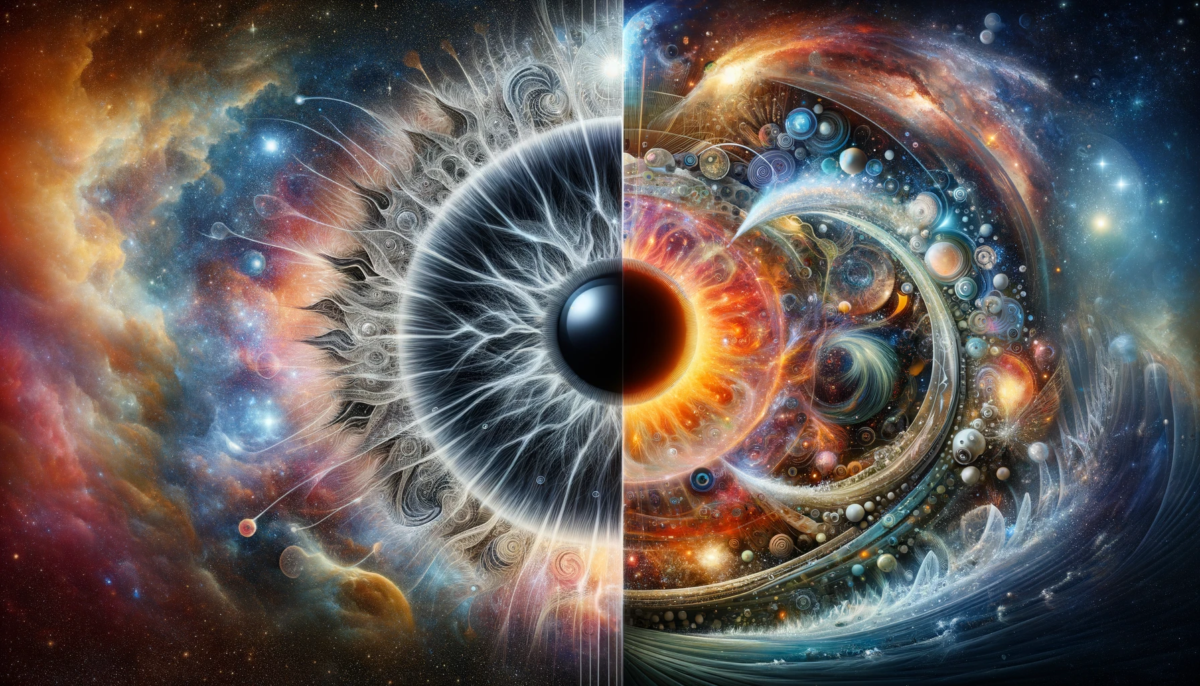
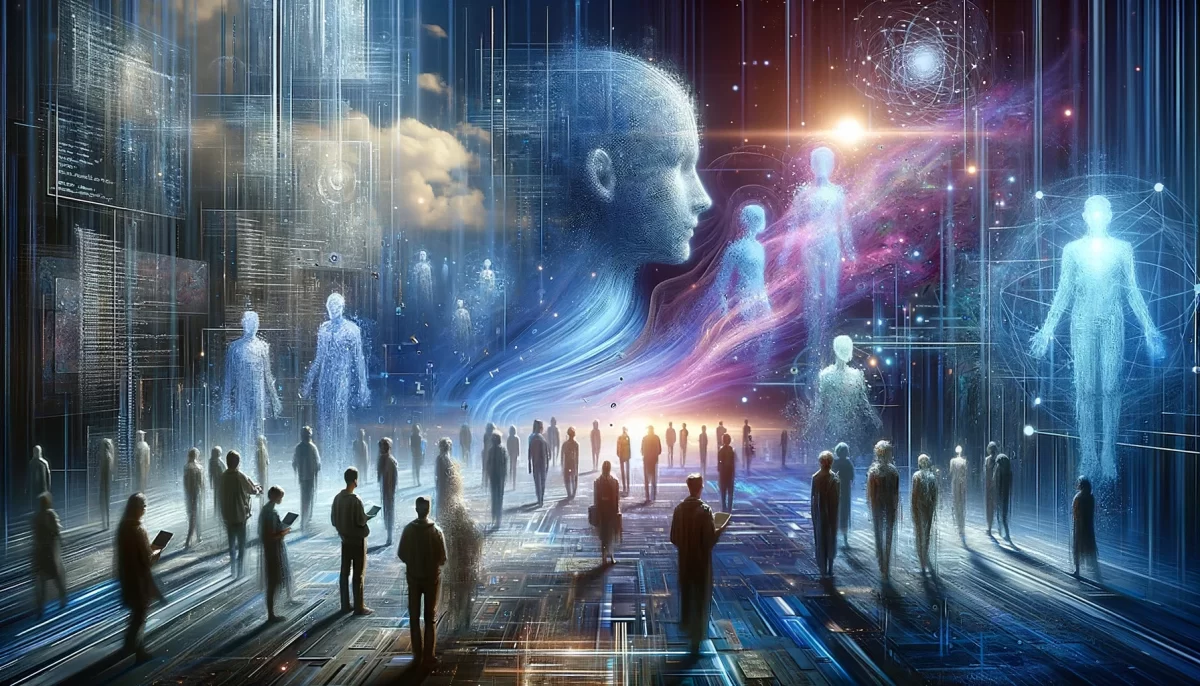


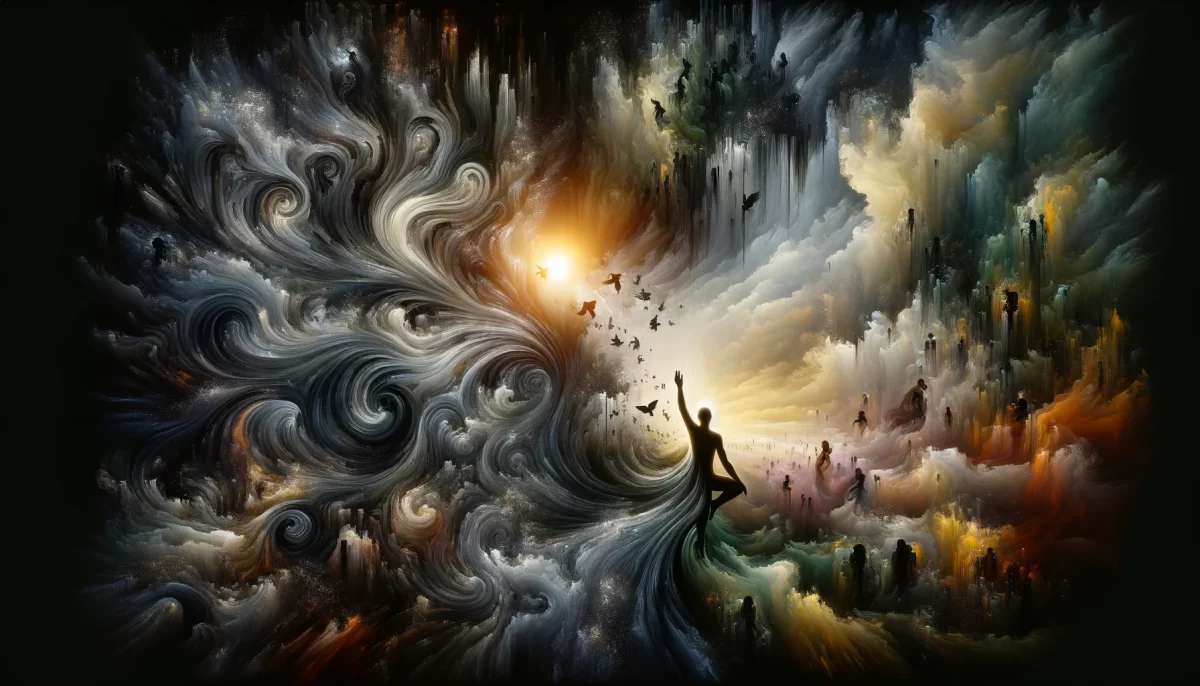
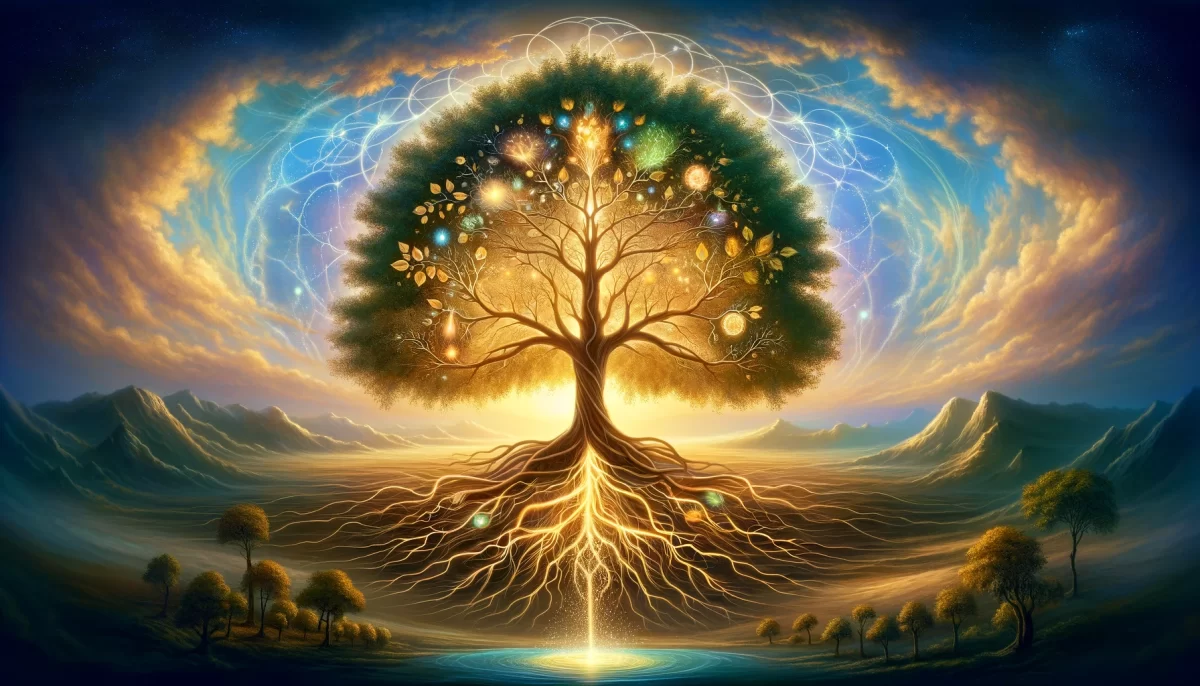
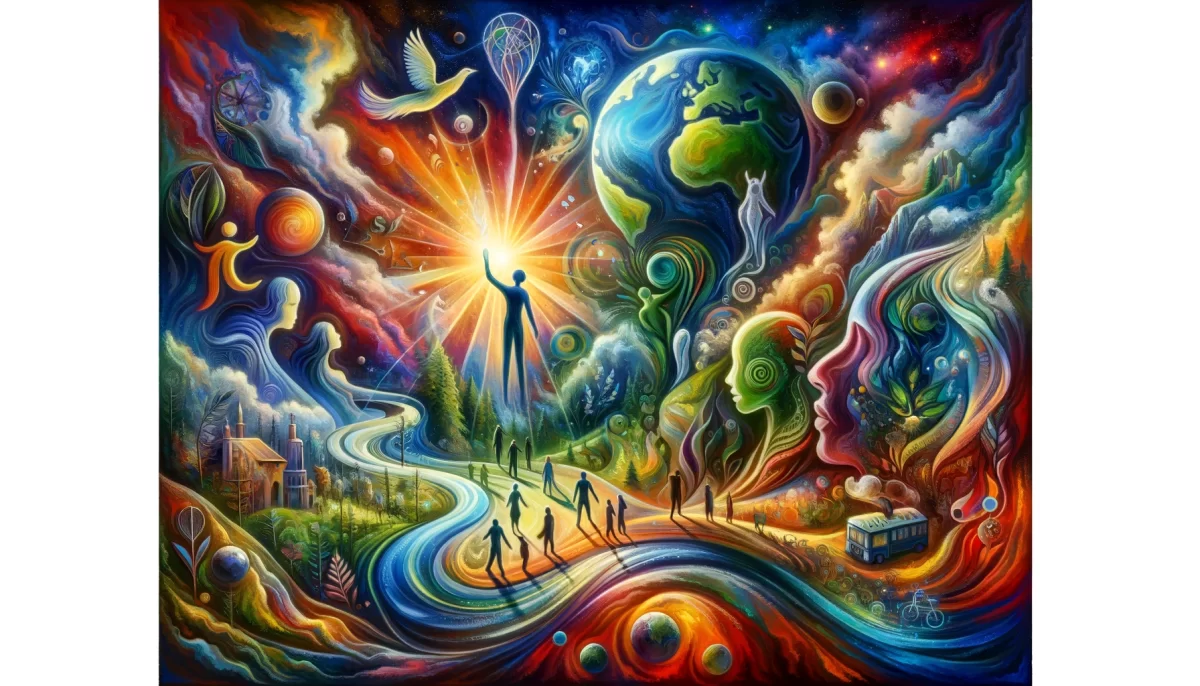
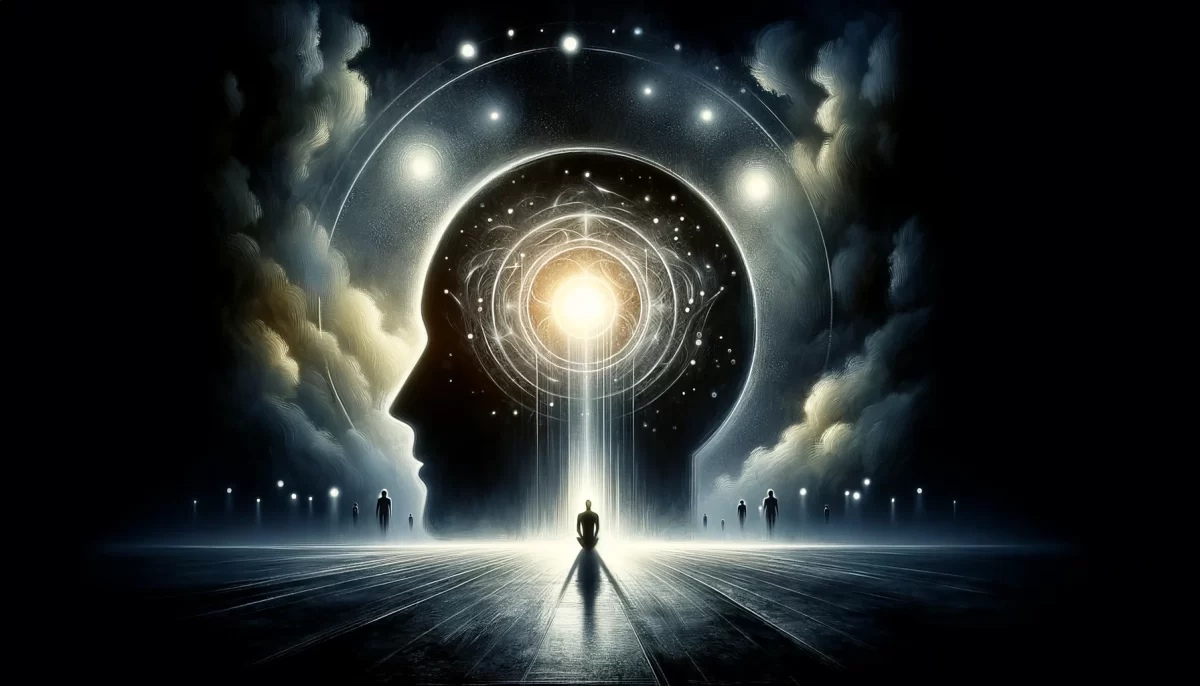
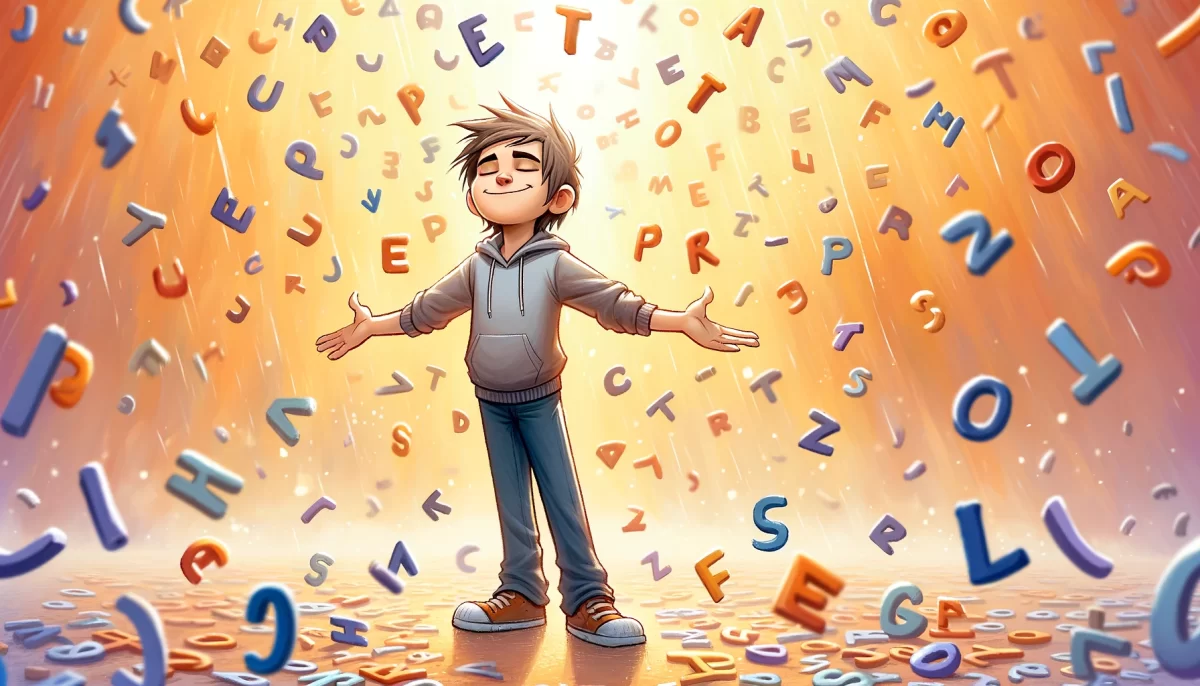
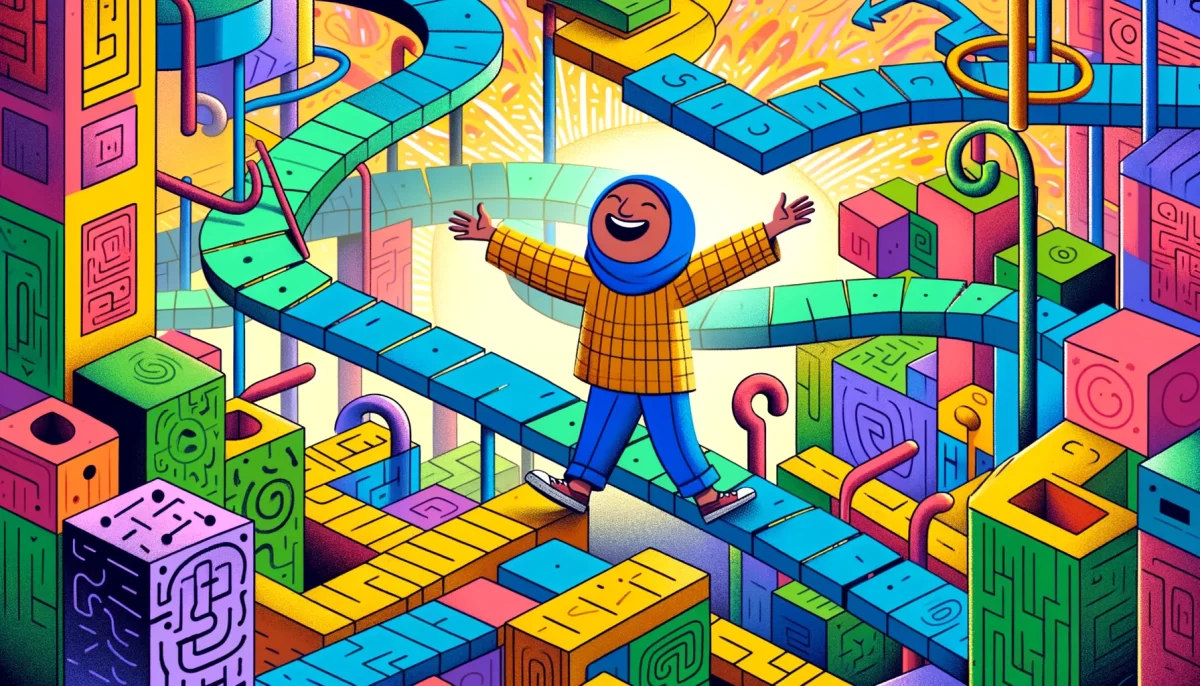

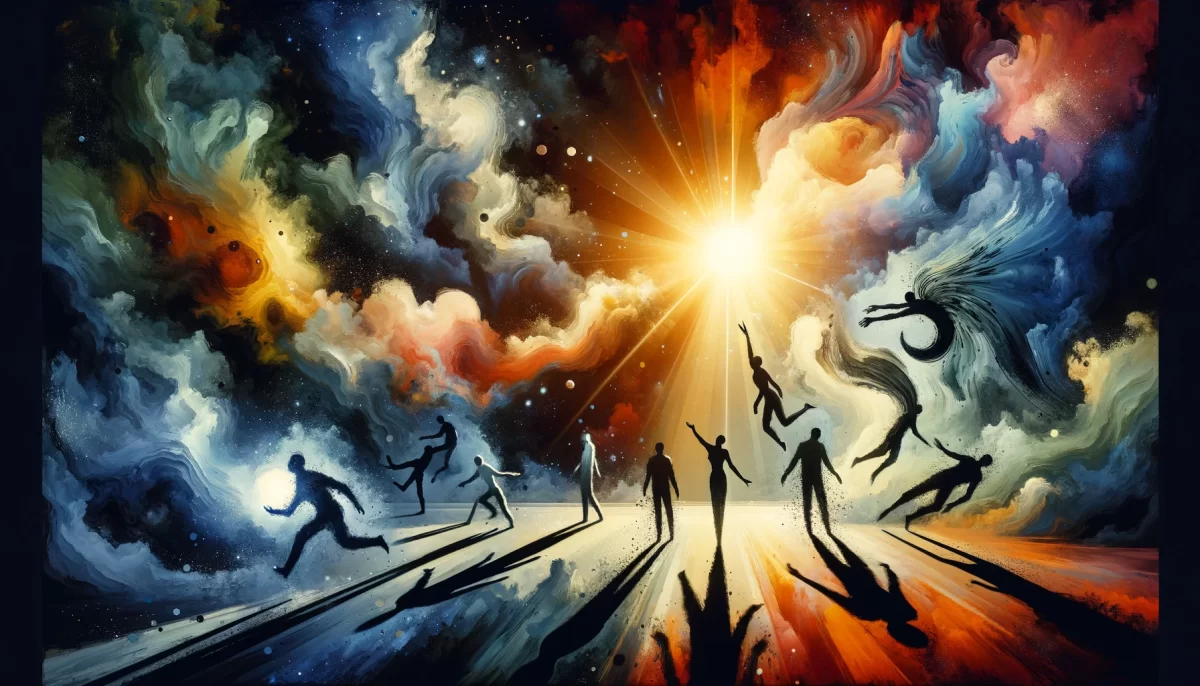


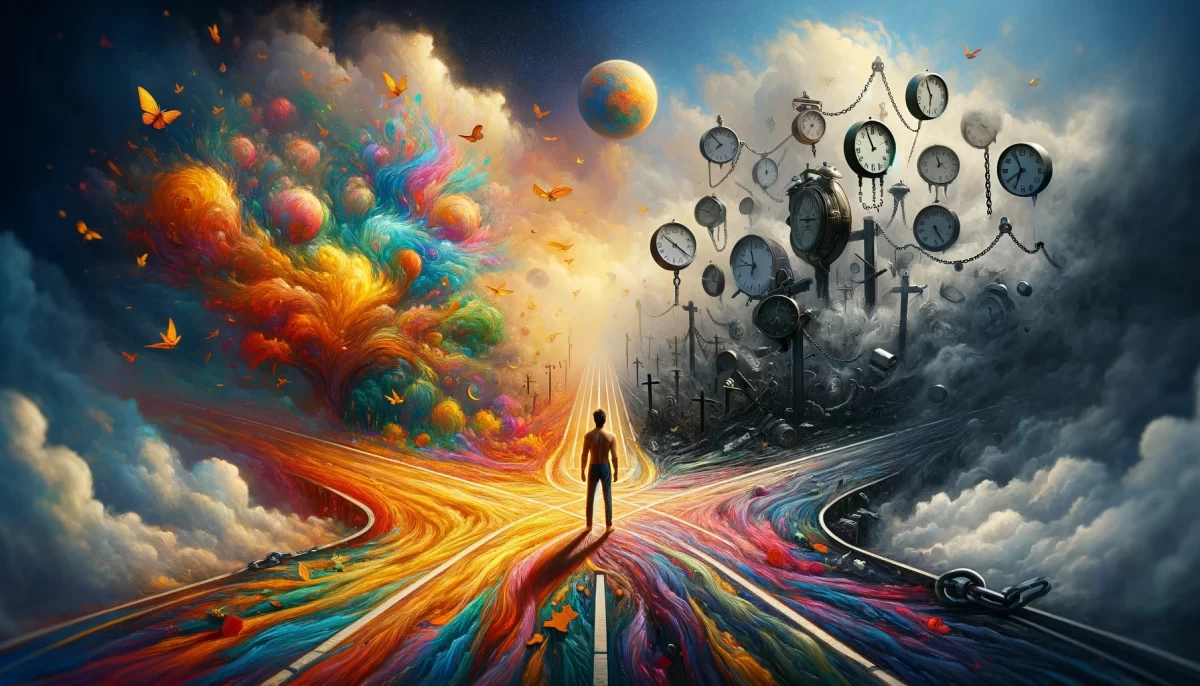
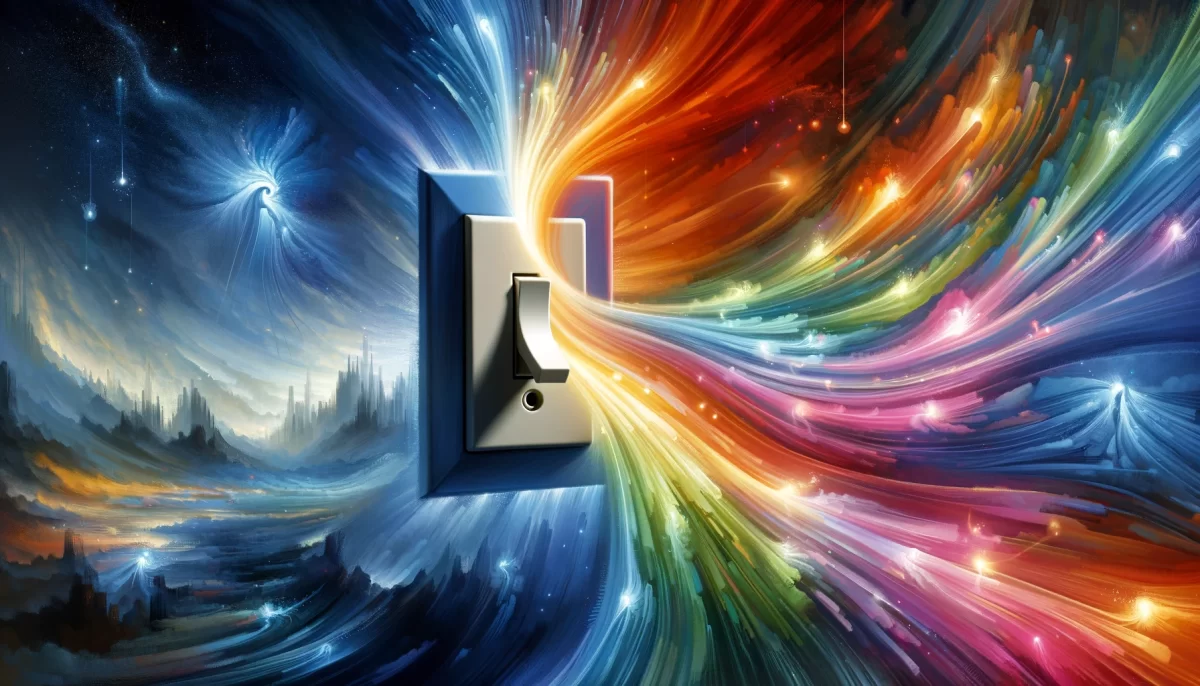


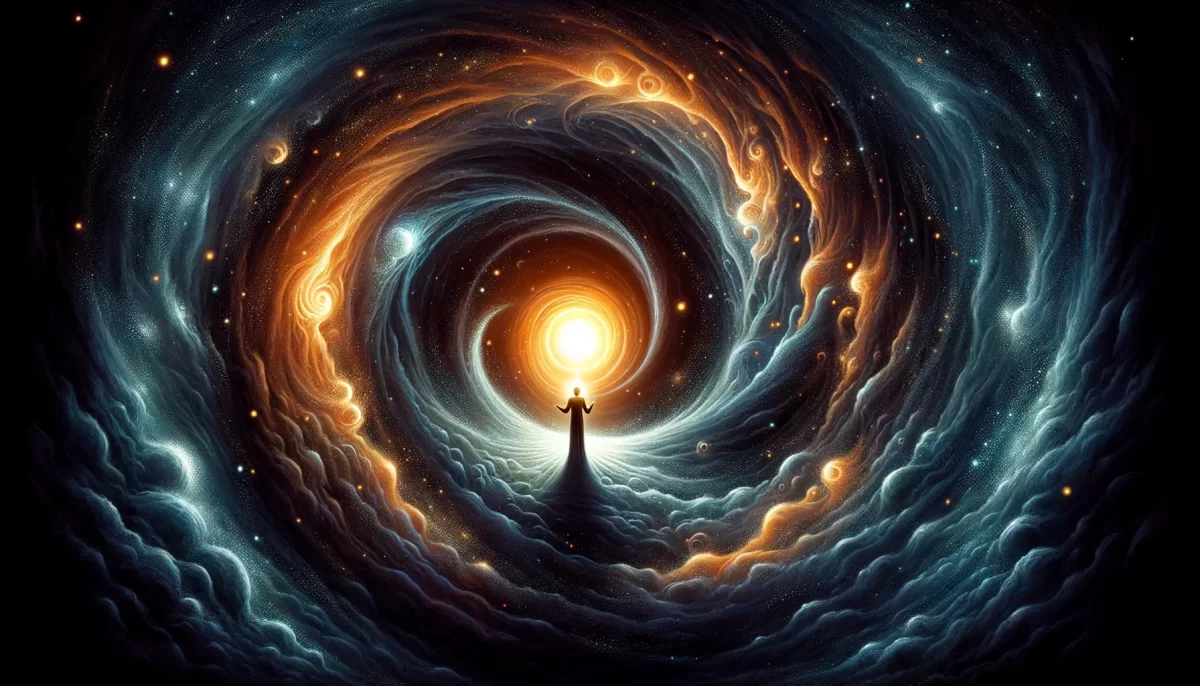
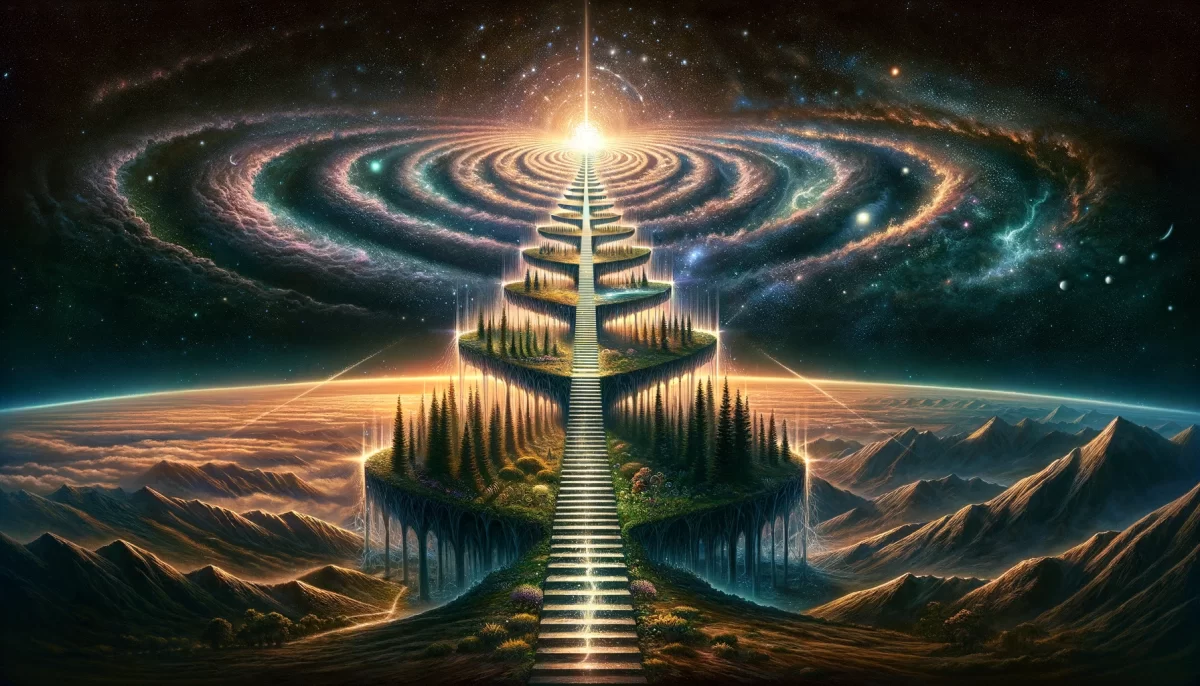
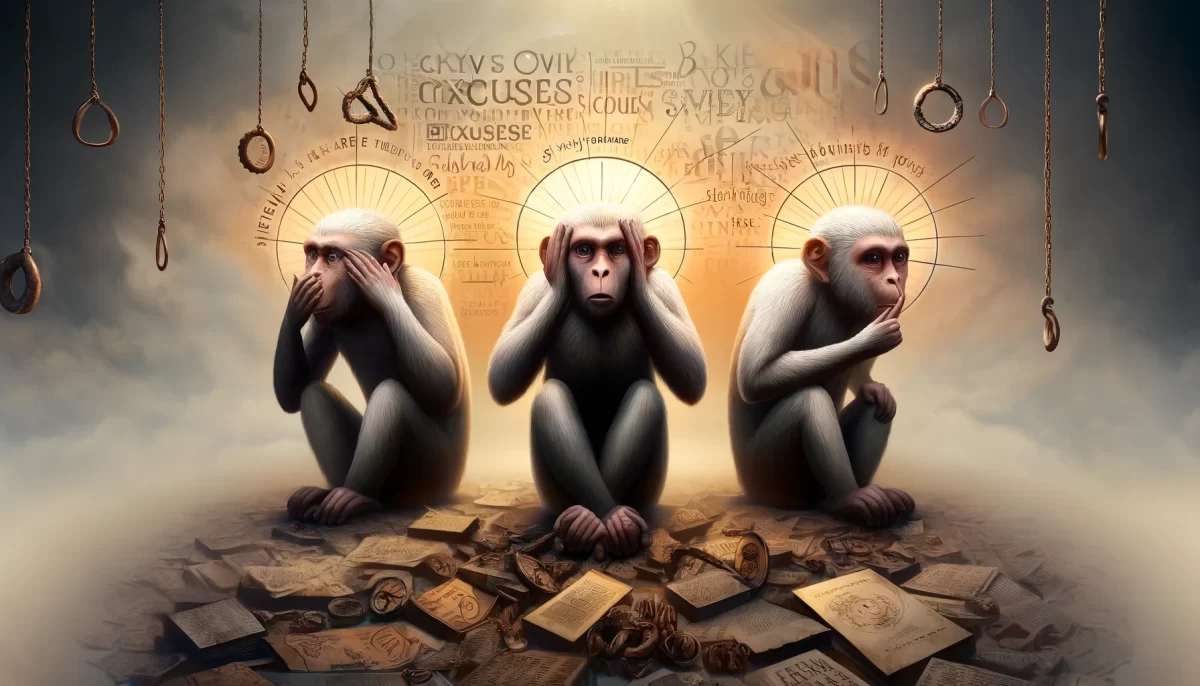
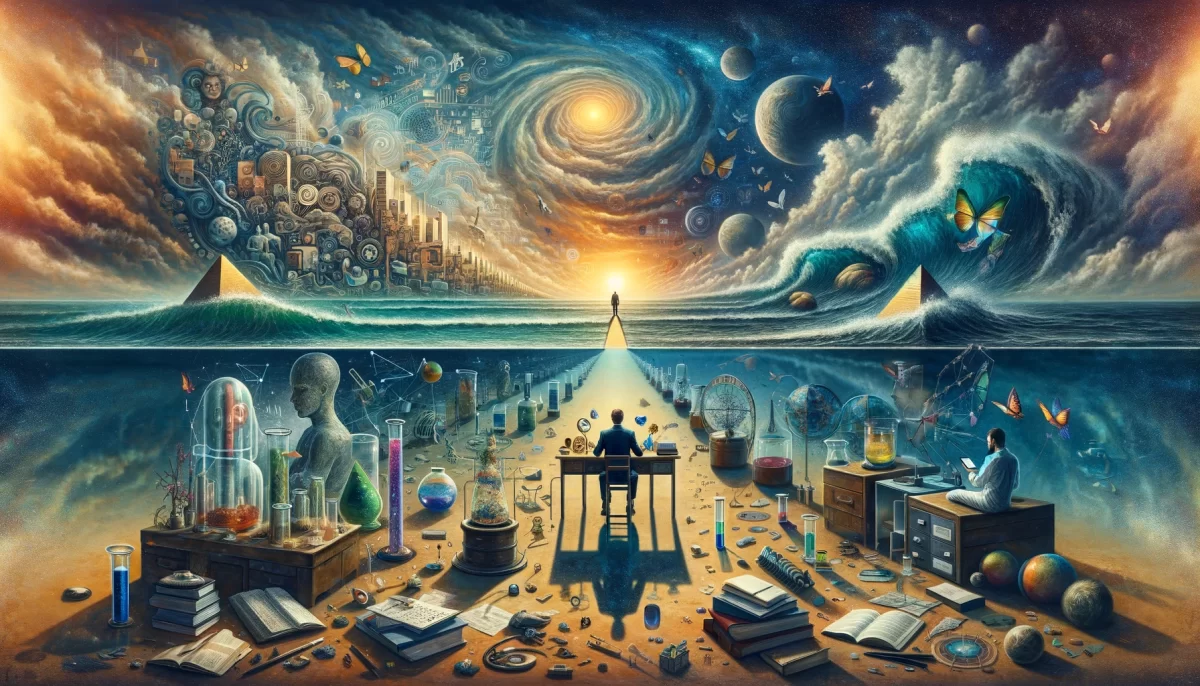
This is a poem that reflects on the nature of happiness and how it can be affected by the actions of others. The speaker acknowledges that their perceptions of others may not be accurate, and that each person has the right to explore their own narcissism. They also recognize that their happiness depends on their perceptions of situations, rather than the actualities, and that they have the power to free themselves from situations that do not serve them. Ultimately, the speaker chooses not to stand in the way of the happiness of others, and acknowledges that others may be pointing the way to their own happiness. The poem ends with the phrase “We are Space Monkey,” which could be interpreted in many ways, but may suggest a sense of freedom and liberation from societal constraints.